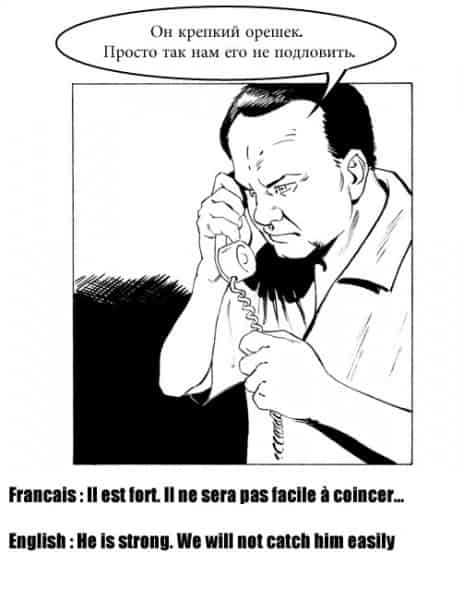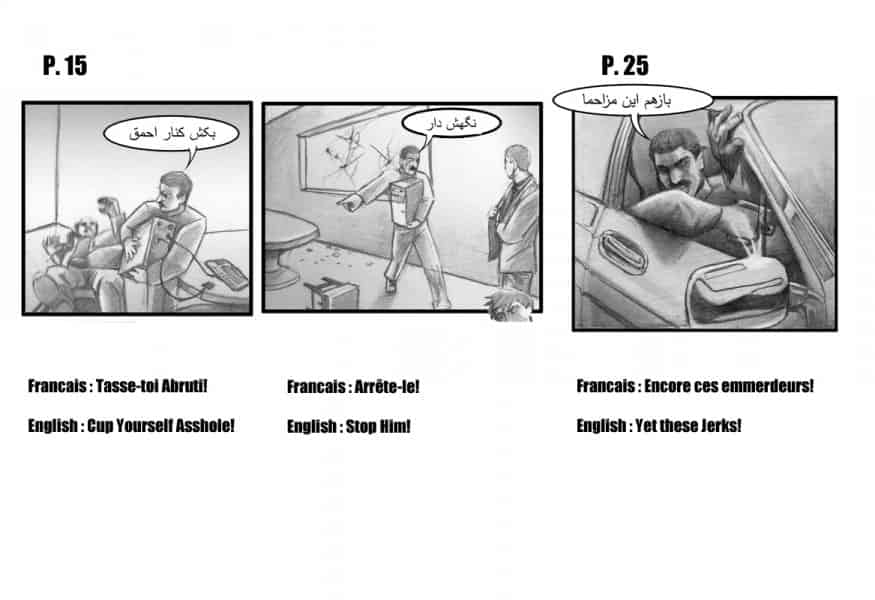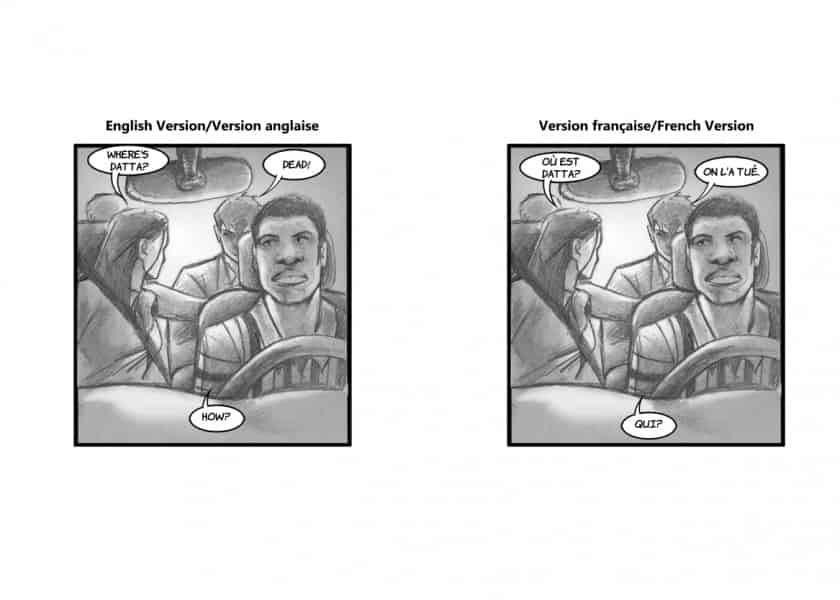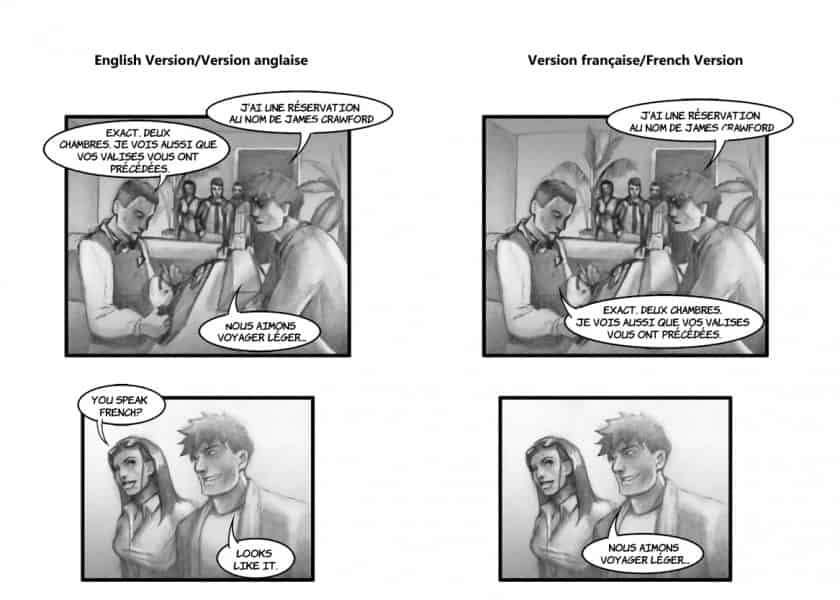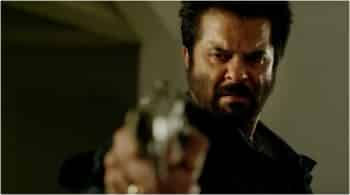
Translation
Lost in translation
We’ve mentioned that we want our heroes to speak different languages in certain circumstances. This sometimes requires changes to the story’s translation. For instance, in “Baptism by Fire,” our agents travel to Bordeaux. In the image here we see them arriving at the hotel. In the French dialogue, the characters talk about missing luggage. But in the English version, we keep some of the French dialogue verbatim and then add a comment about Fabien knowing how to speak French. That wouldn’t make any sense in the French version. See image.
We don’t all speak the same language, you know!
In movies or TV shows, it may be tempting to make simplifications to make it easier for the target audience to understand. For instance, how many Nazis actually spoke English with that ridiculous German accent? This may have been acceptable 40 or 50 years ago, but in our global society, this type of shortcut can be a little ridiculous. On the TV series “24,” you see Arab bad guys talking English even when they are alone together. We use different languages in the webcomic not because we want the viewer to feel lost, but because we want to give the story setting more credibility.



